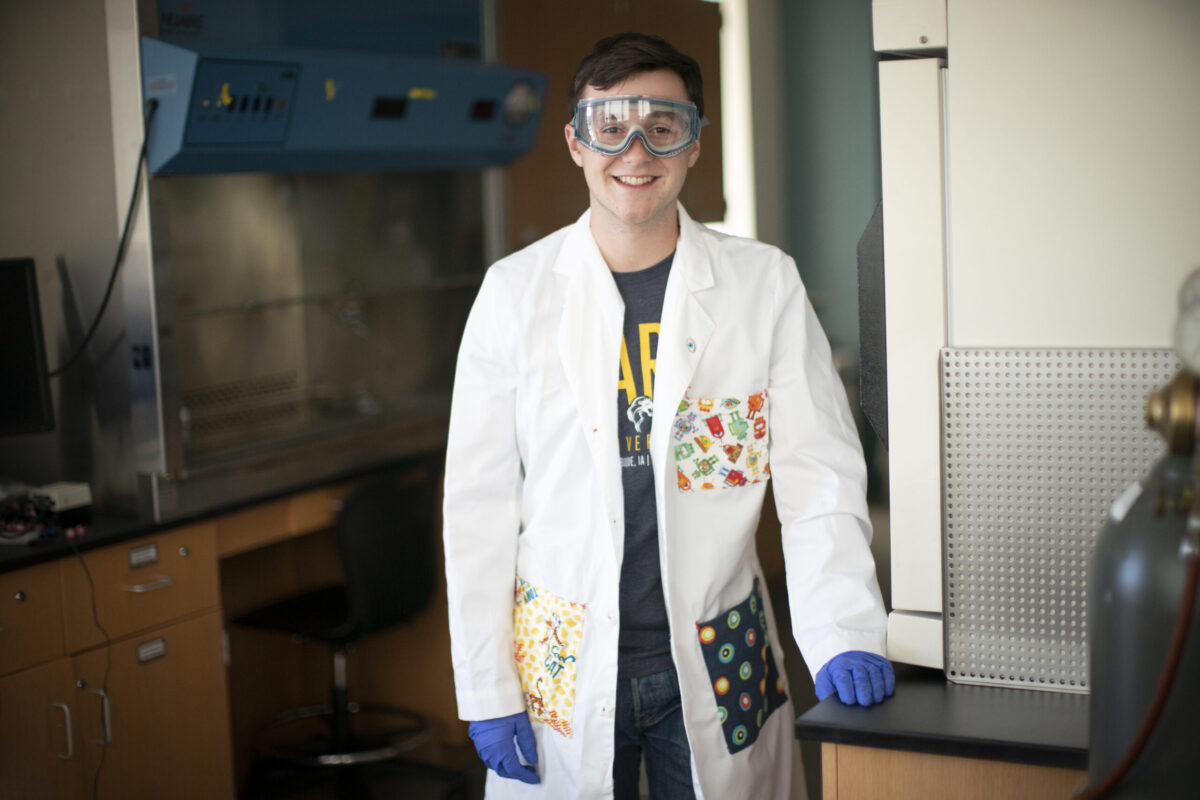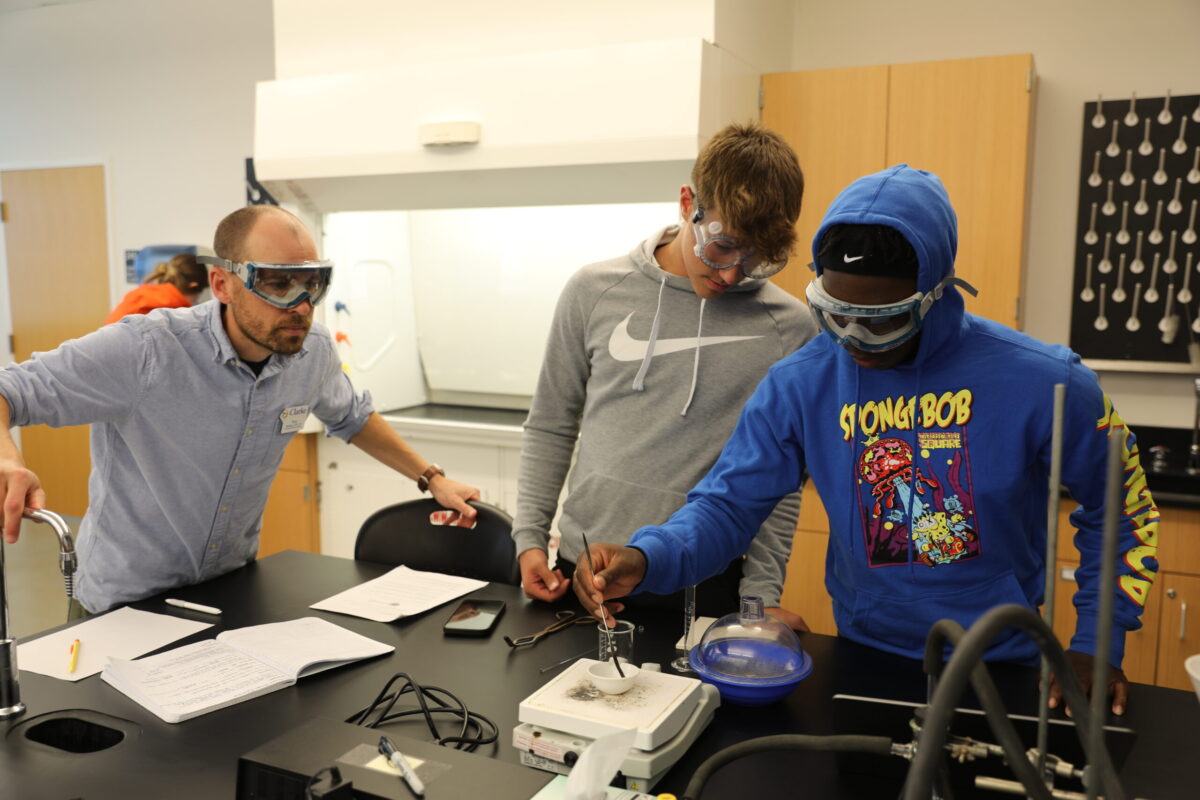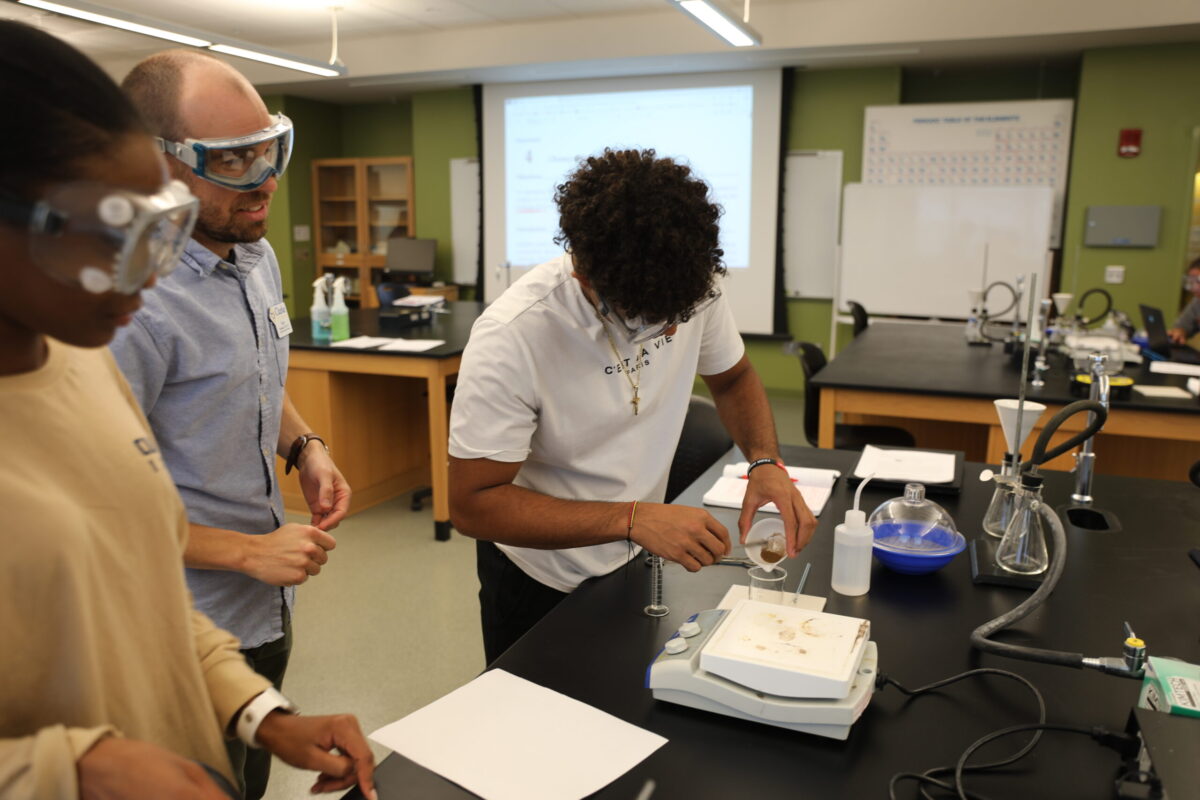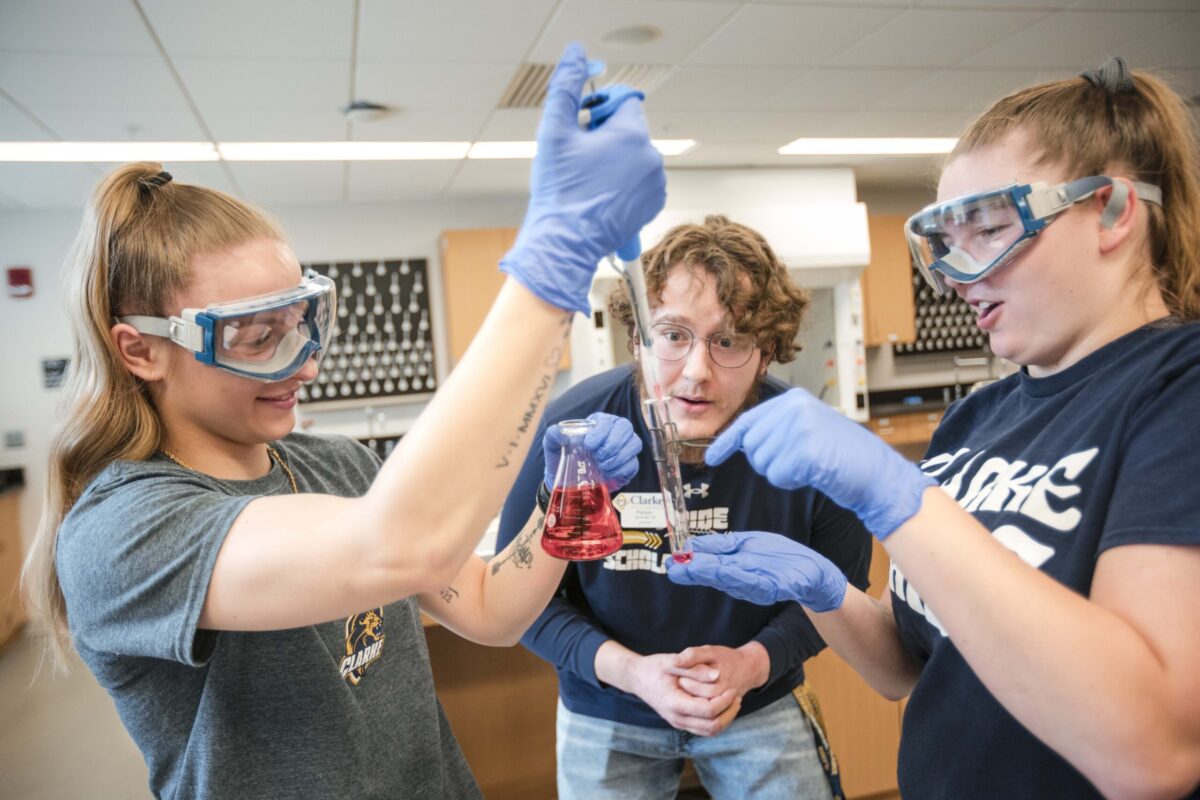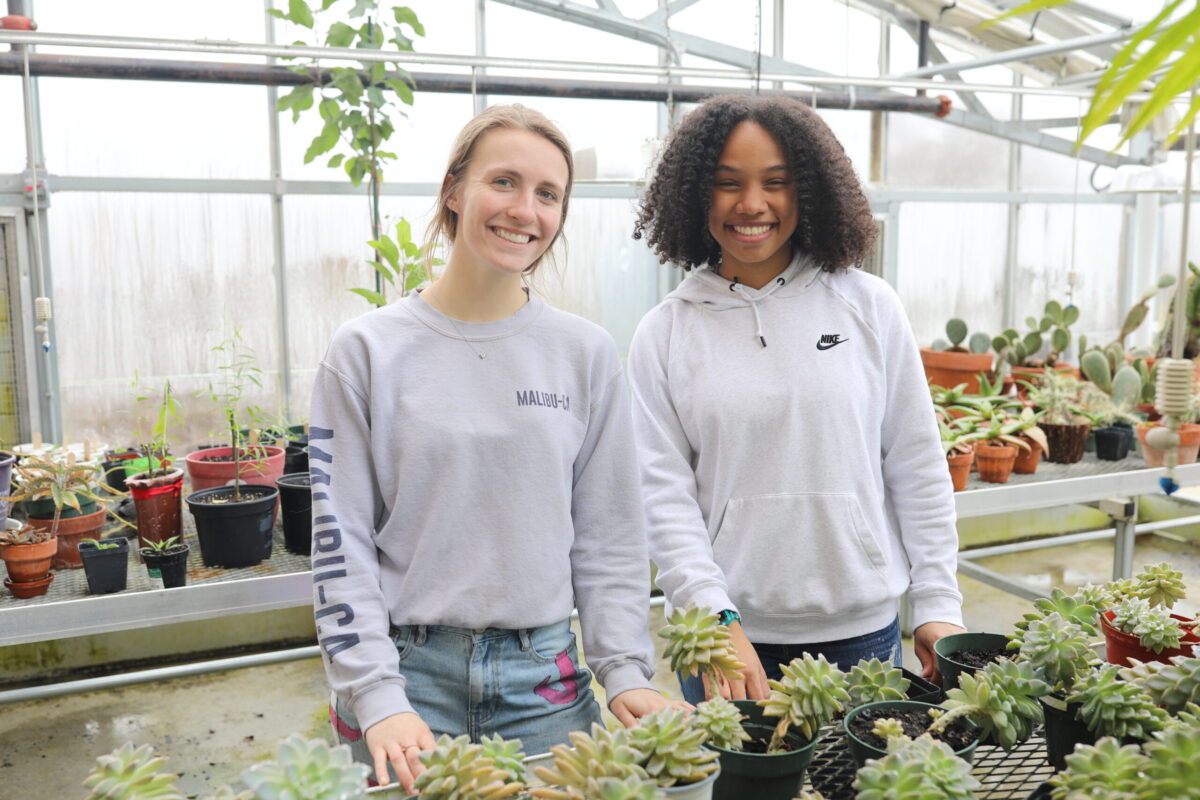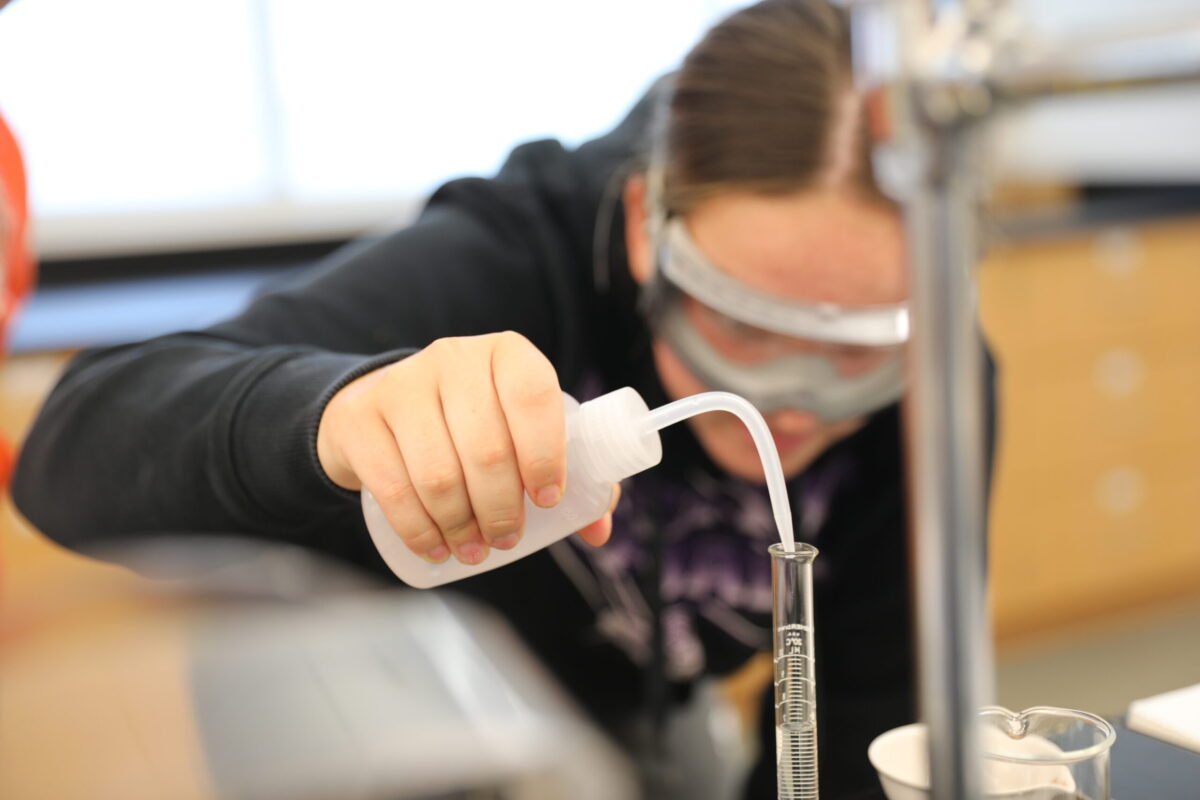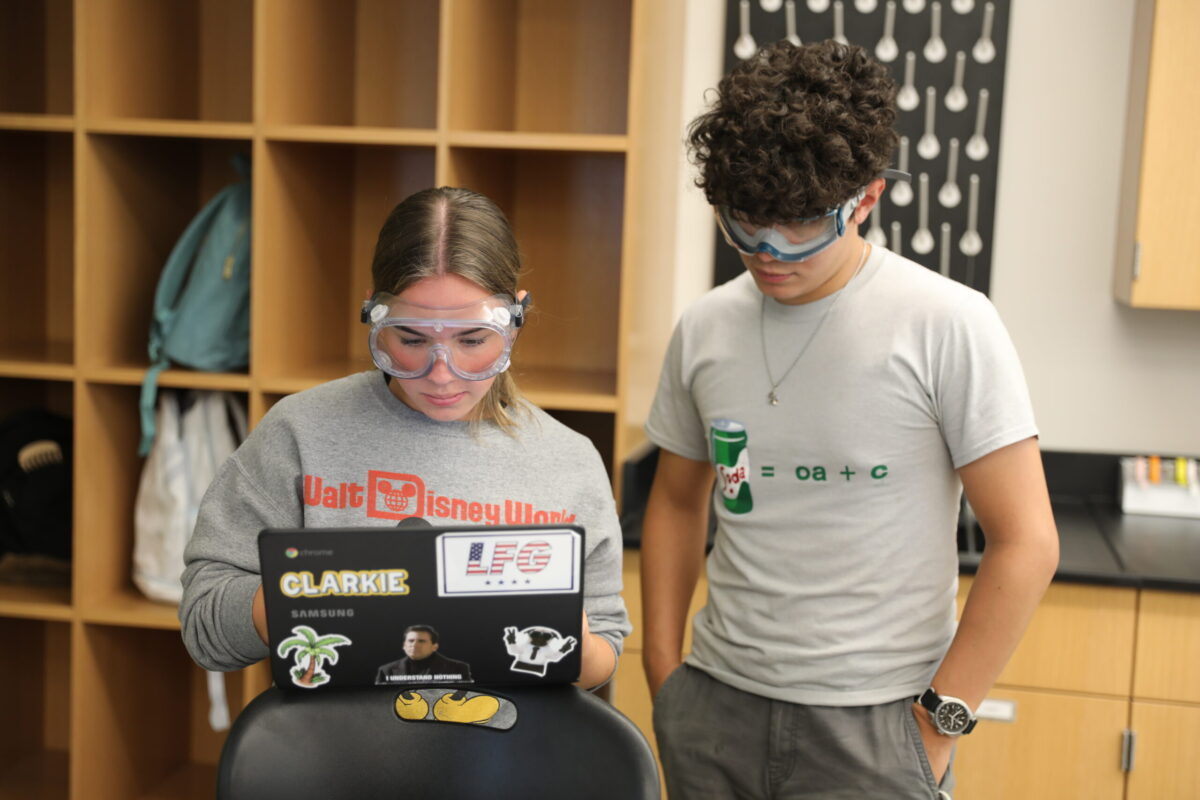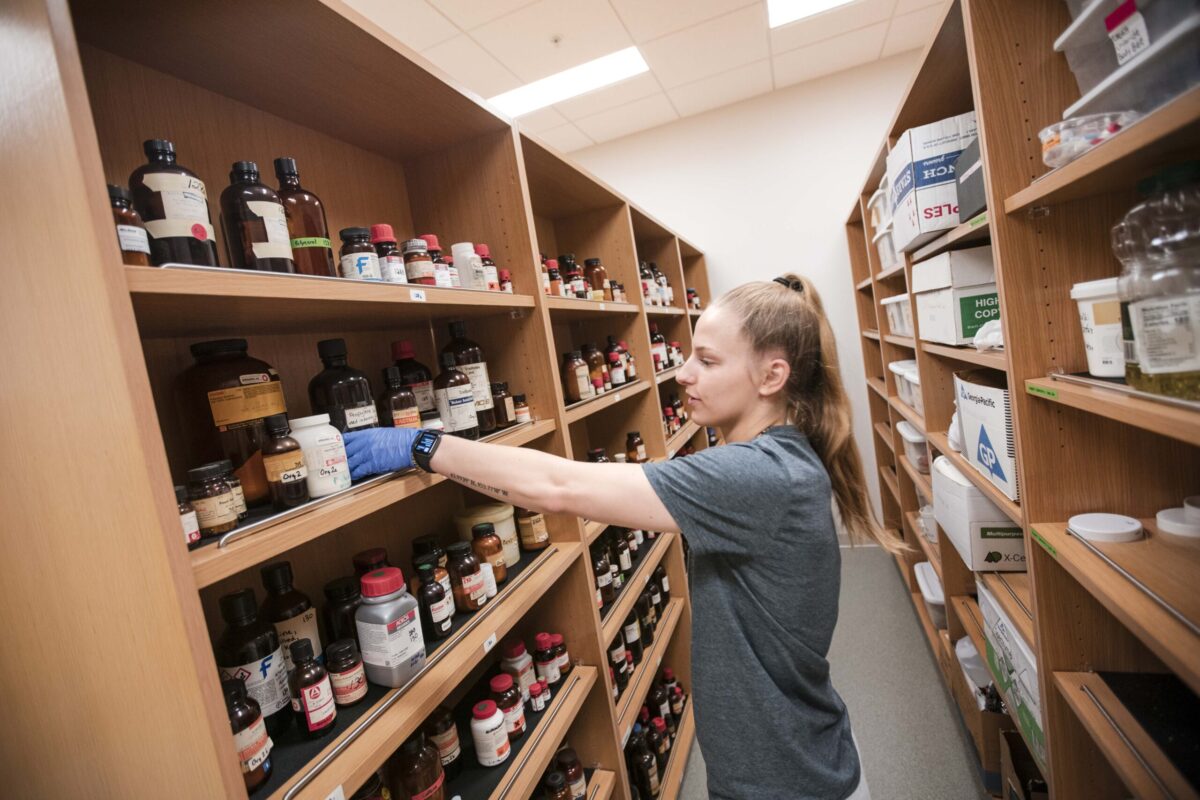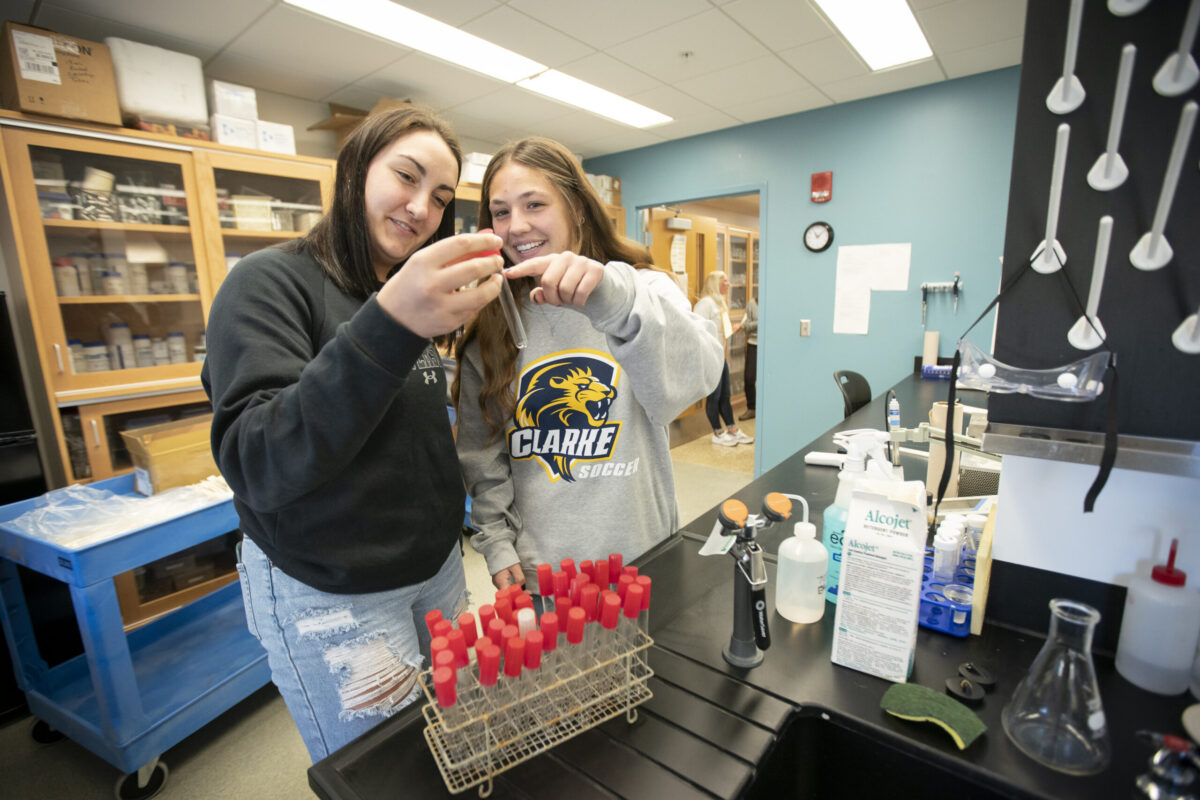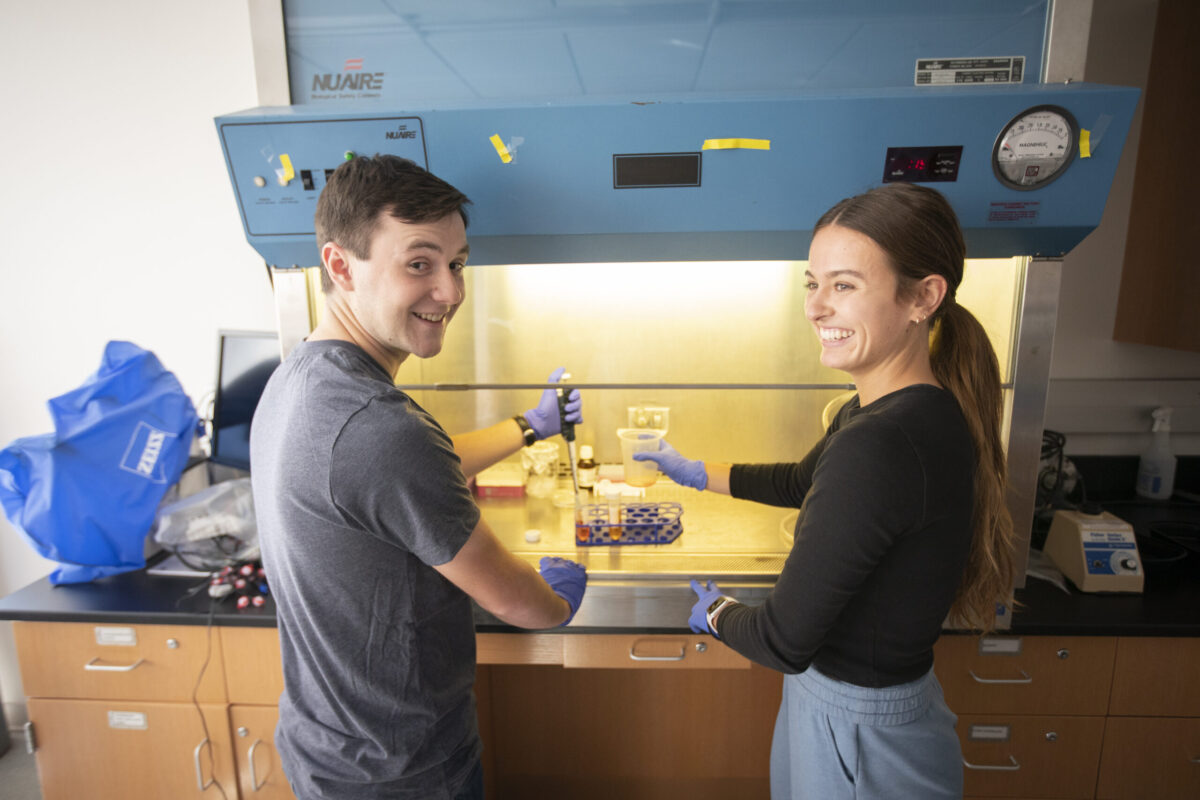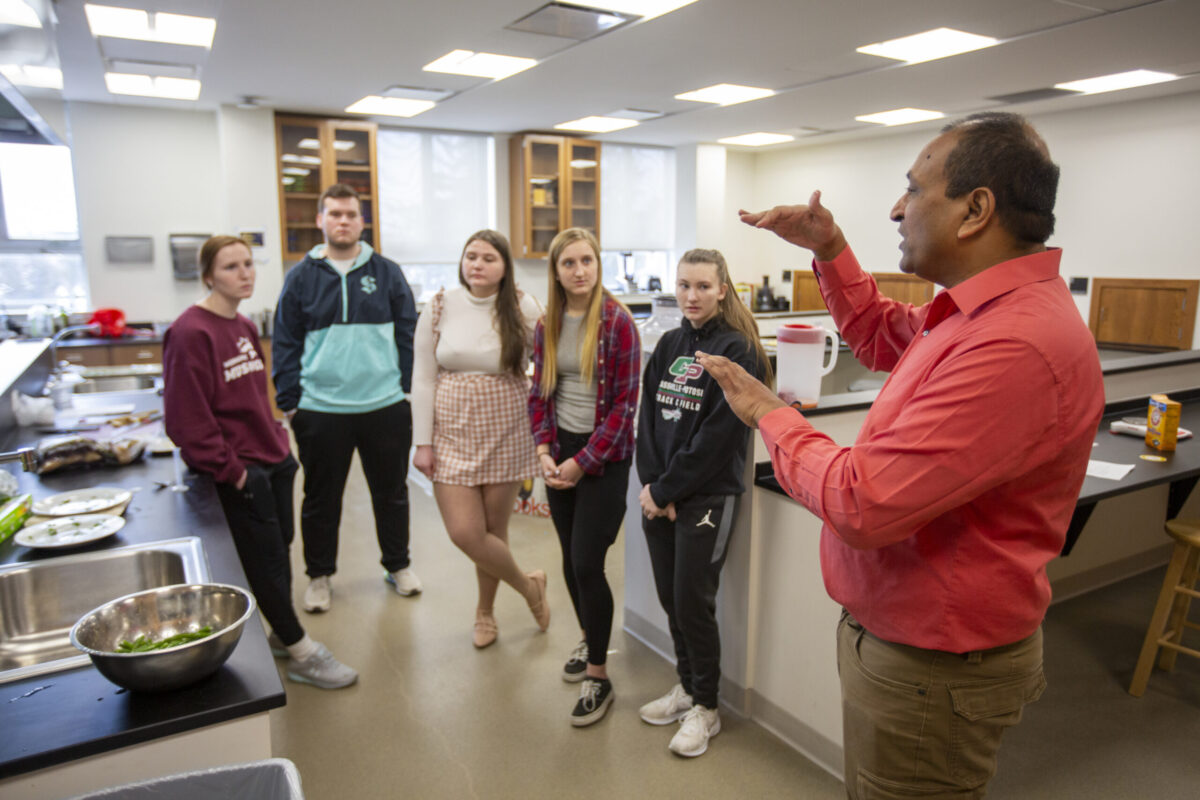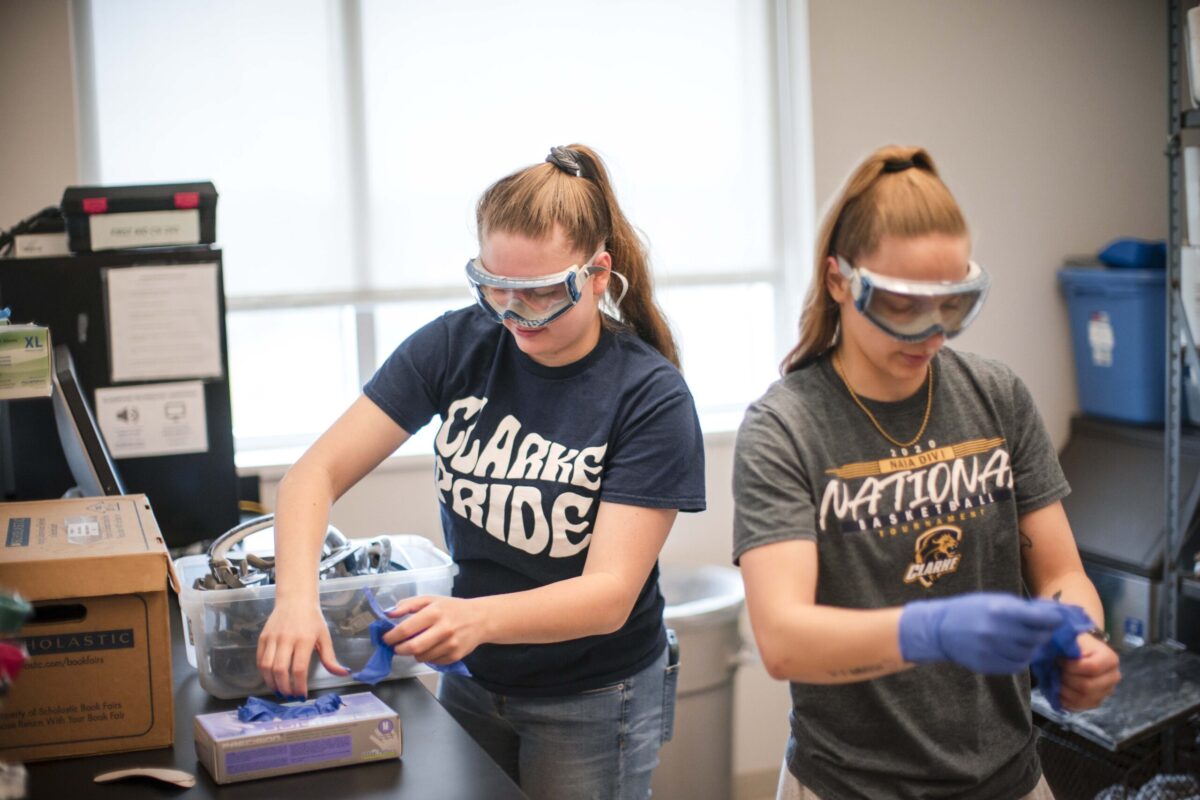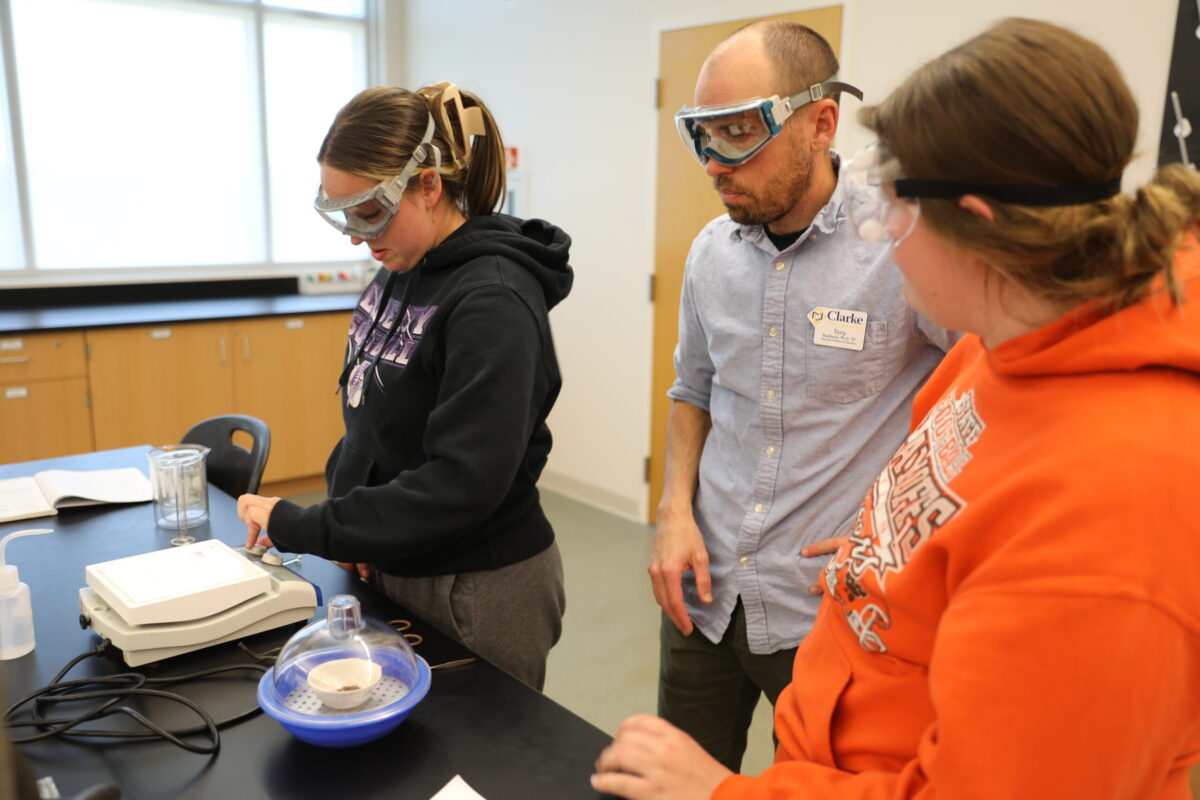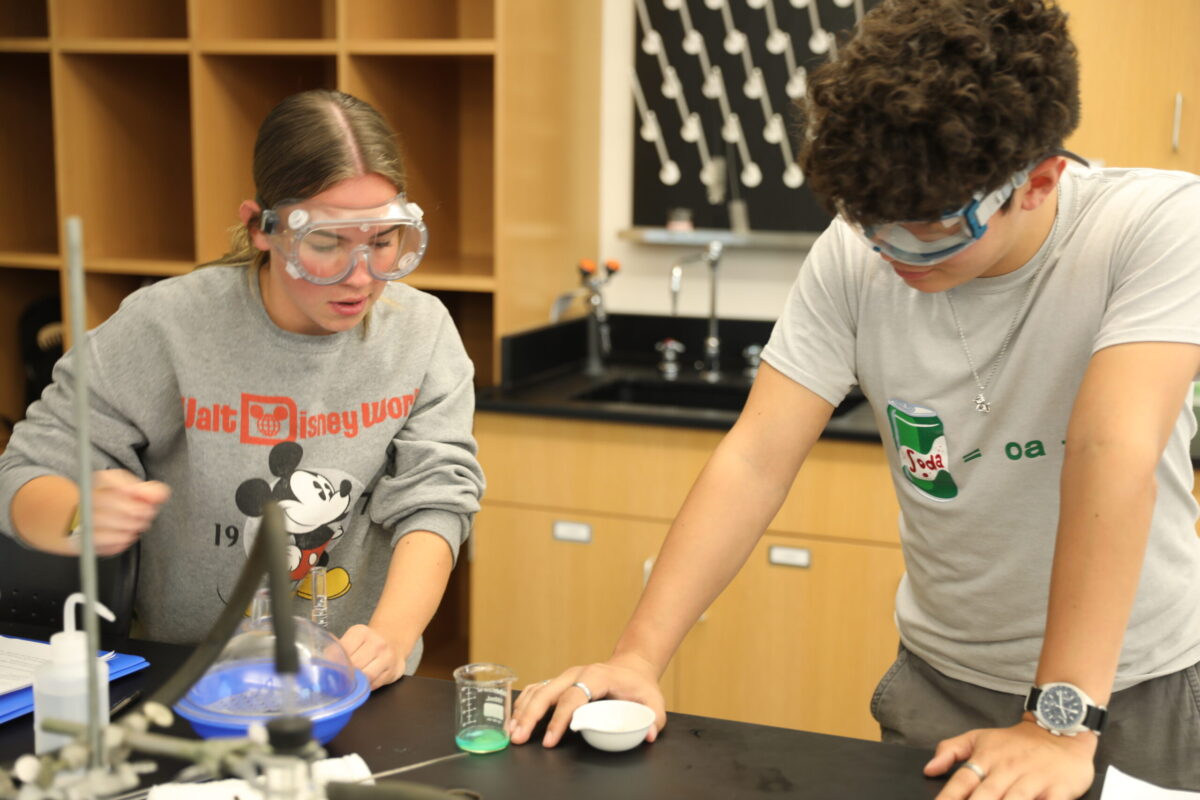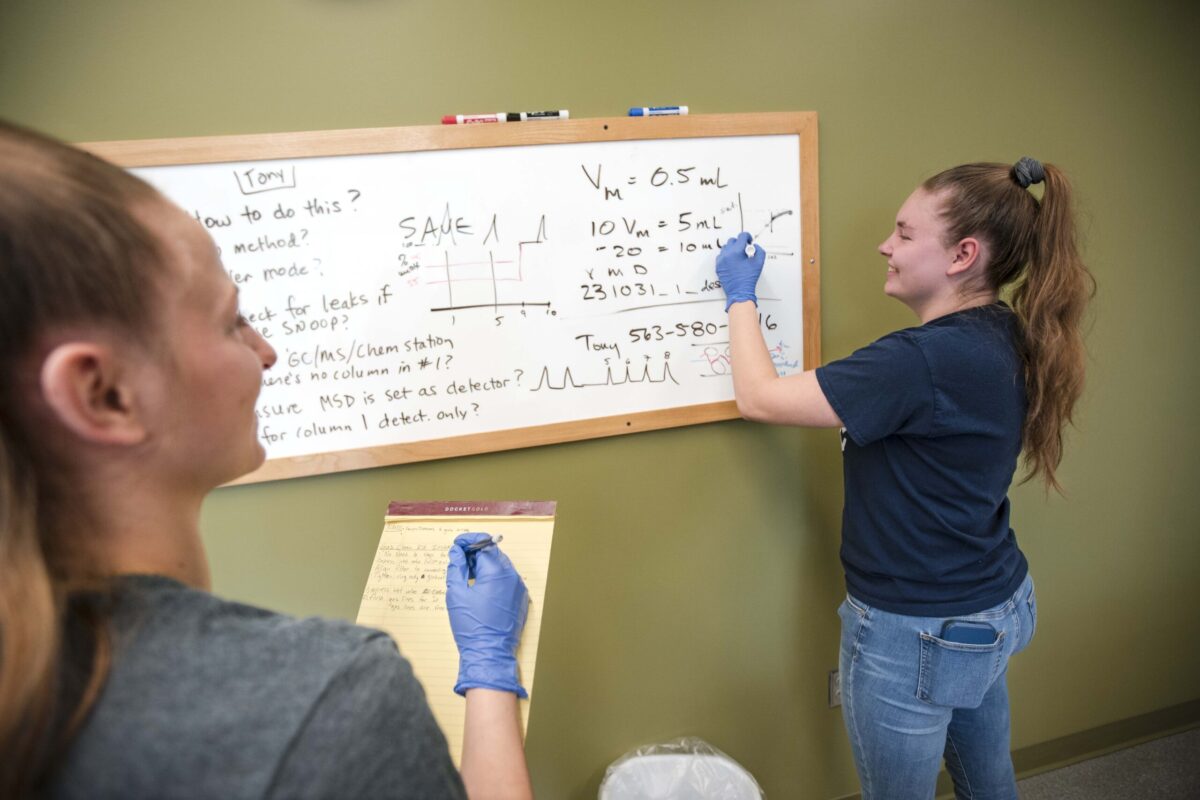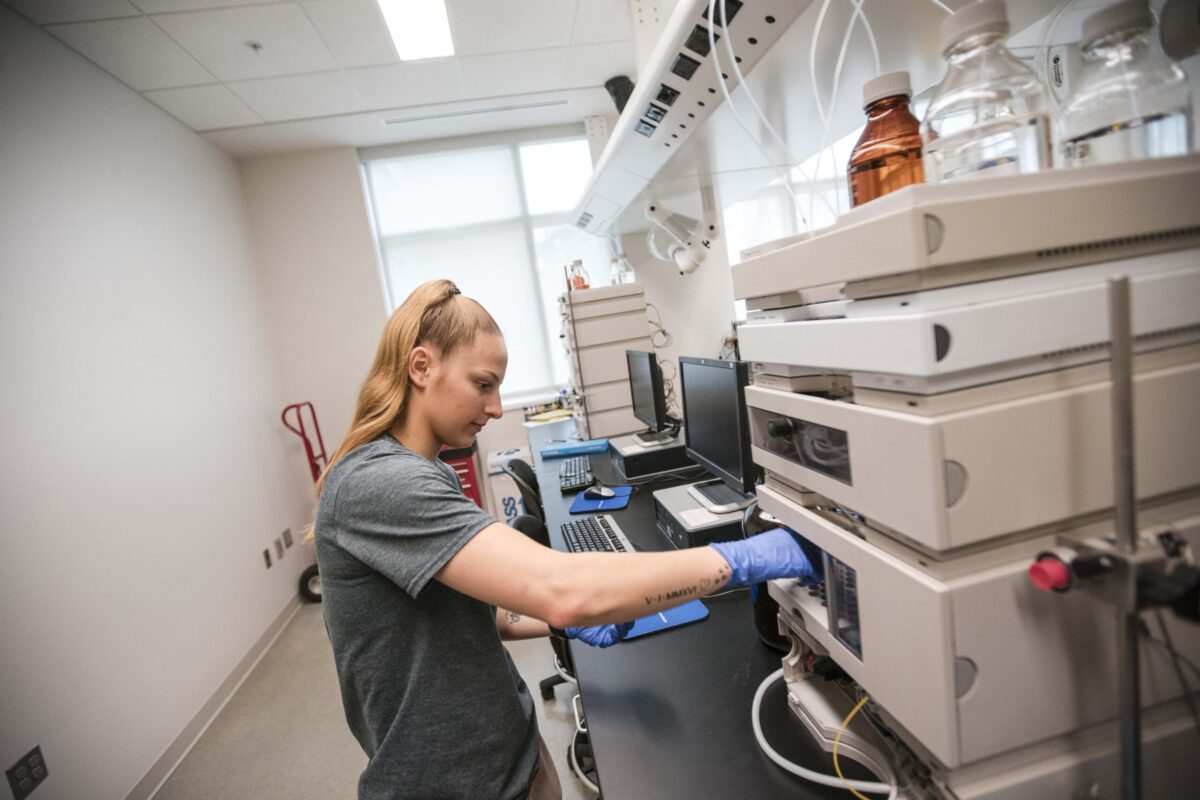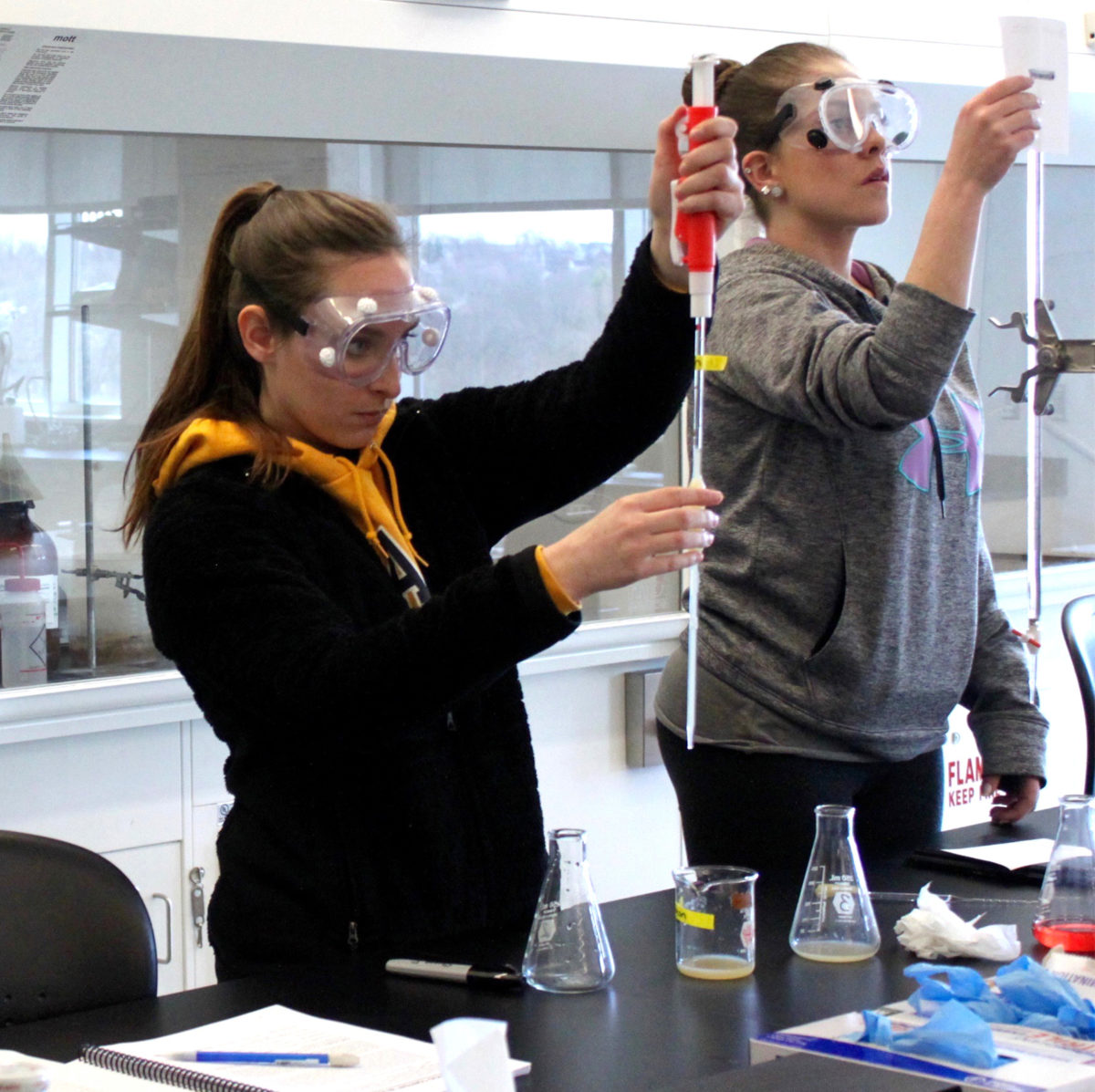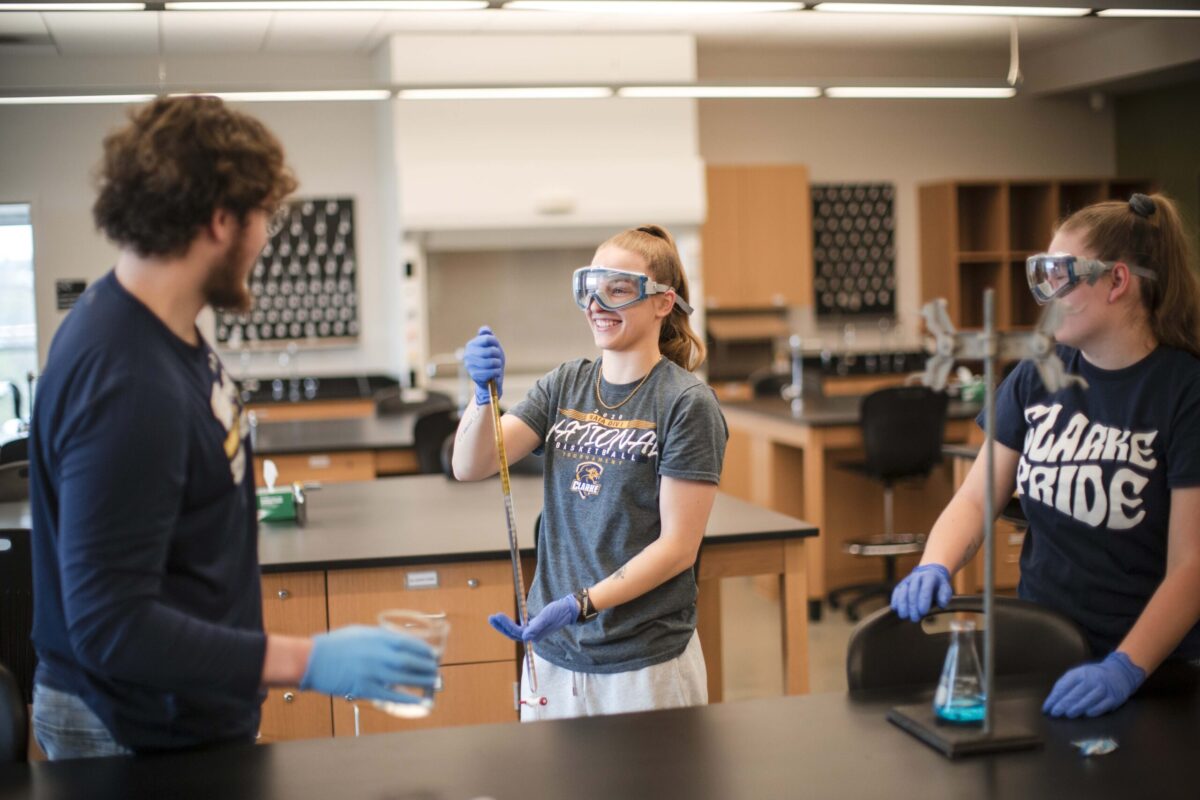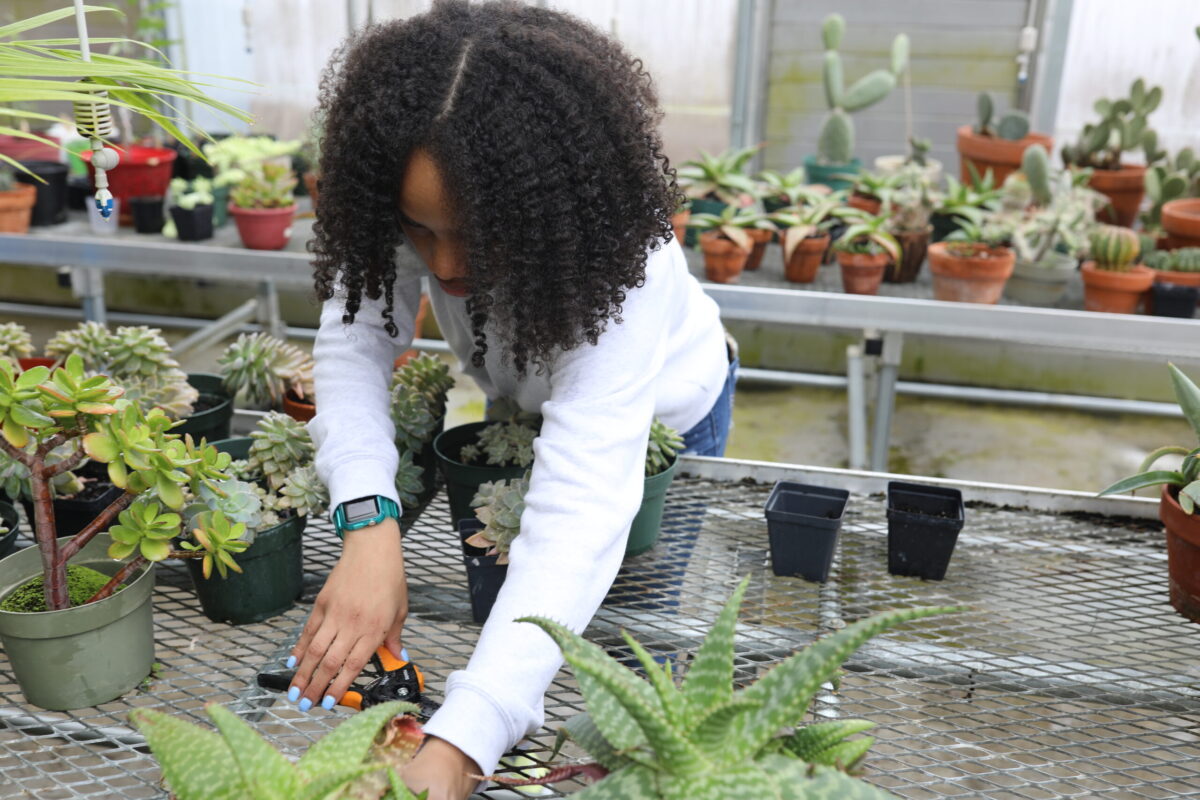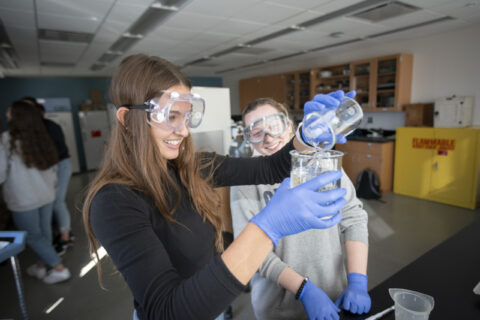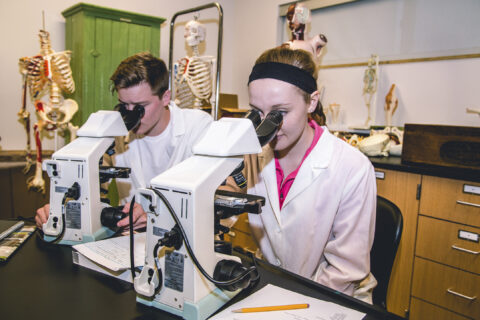Michelle Slover, Ph.D.
The integration of lab and lecture in my anatomy courses works well. The two components complement each other and provide multiple ways to learn.
If you want to study Biochemistry in Iowa, Clarke University is the place to do it! Our Biochemistry degree not only prepares you for careers in exciting and growing fields but unlocks an understanding of the life around you. Biochemists explore the chemical processes of organic systems and play a critical role in medicine, materials science, environmental science, and research across a wide variety of industries. Paired with our liberal arts background, you’ll have a well-rounded foundation to succeed in any industry you choose.
Clarke’s biochemistry major is designed to help you make links between the molecular design of life – be it plant, animal, or human health and nutrition. As a biochemist, you will study how a living organism processes and uses energy, how pharmaceuticals interact with the body, the chemical nature of genes, and more. Thanks to the Marie Miske Center for Science Inquiry, you will have access to the advanced microscopy, modeling software, and other equipment that make observing these molecular miracles possible. As early as your first year, you will have the opportunity to conduct experiments and research that advance your understanding of biochemistry, mathematics, and related sciences under the guidance of experienced and engaged faculty.
One of the most exciting aspects of biochemistry is its increasing interaction with medicine. Biochemists study the molecular basis of diseases such as diabetes, cancer, cystic fibrosis, and AIDS – all areas we explore in Medicinal Chemistry and other courses here at Clarke. If medical school is your long-term goal, a bachelor’s in biochemistry provides an excellent foundation for continued study.
Whether your goal is graduate or professional school or to begin work in the sciences, a biochemistry degree from Clarke University puts you on the path to success. test
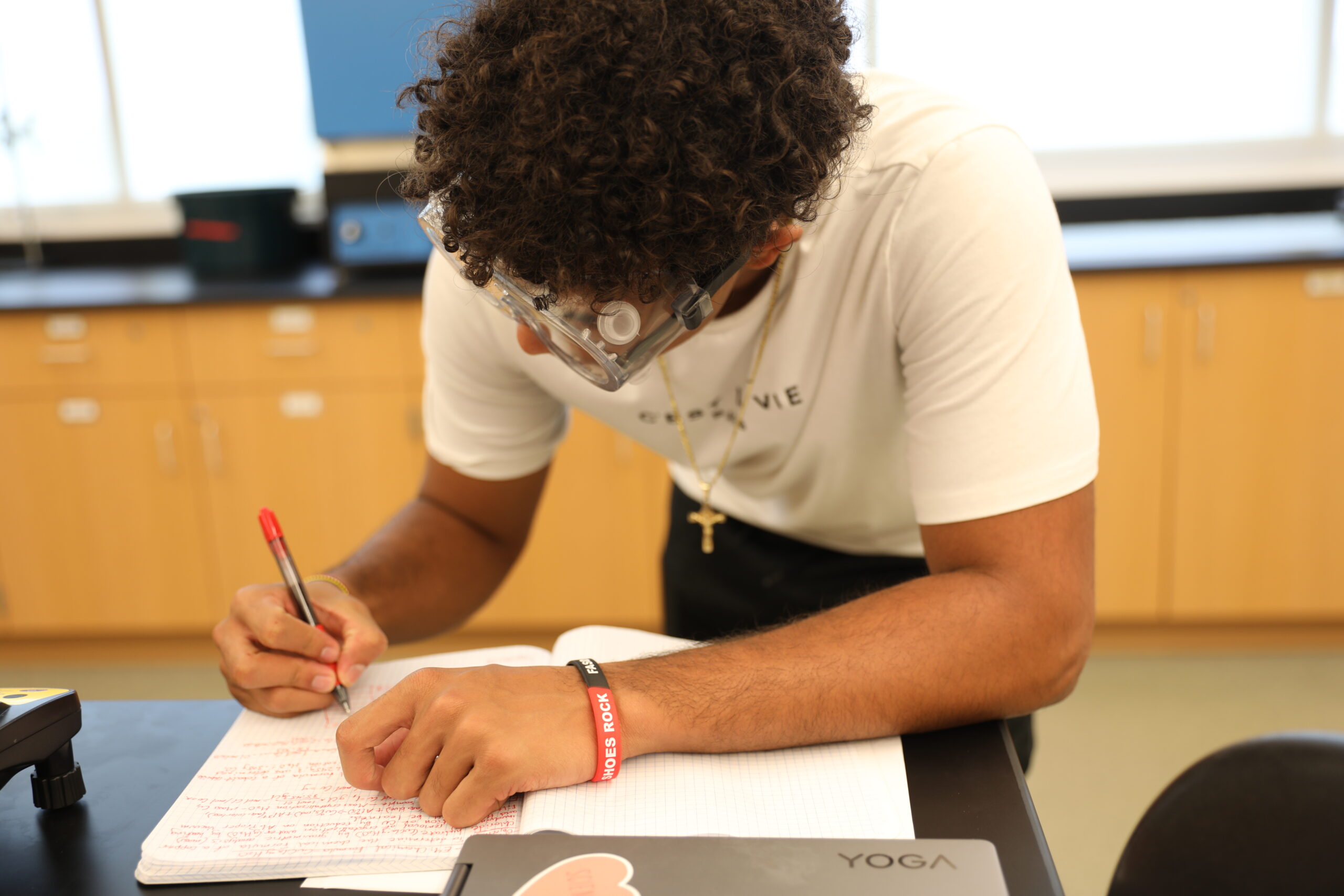
Below is a small sampling courses you may take as a Biochemistry major:
METABOLISM — Deepen your understanding of metabolic, biosynthetic, and degradation pathways.
BIOCHEMICAL METHODS — Learn and practice multiple biochemical techniques, such isolating and purifying a protein from a once living source such as a beef heart or a pig’s brain.
MEDICINAL CHEMISTRY — Gain insight into the chemistry of pharmaceuticals with an in-depth exploration of the molecular reactions.
You may pursue one of the following degrees: B.A. Chemistry, B.A. Biochemistry, or B.S. Biochemistry. The degrees differ in the number and types of course required to provide you with flexibility in your studies. You will receive professional guidance from faculty to make this decision. The Clarke Biochemistry Program offers a truly unique undergraduate experience to its majors, including:
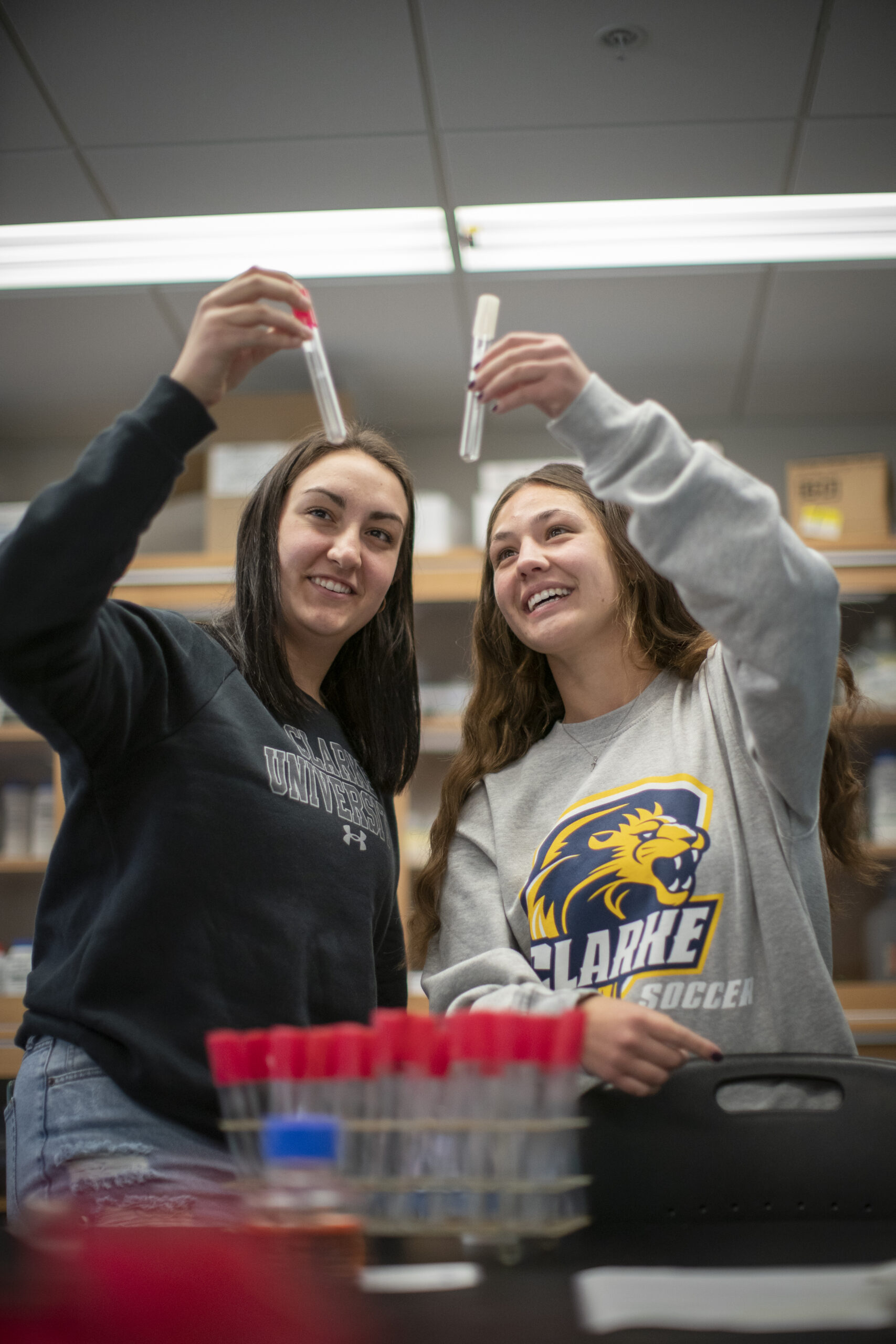
How You’ll Learn
Clarke’s use of technology is pervasive – from hand-held data collection to molecular modeling. Visualization and the use of software is key to understanding. You will be able to use this equipment and more in the lecture-lab classrooms found in the Marie Miske Center for Science Inquiry. Introductory research classes are an option as early as first year.
What careers are available with a Clarke Biochemistry degree?
A degree in biochemistry provides a strong foundation in science and mathematics that gives graduates the flexibility to pursue a wide range of careers across Academia, Industry, Government, and Health Care. Some example careers within these sectors include:
Academia: Teacher/Professor, Lab Manager, Researcher, Technical/Grant Writer
Industry: Lab Tech, Research Scientist, Fermentation Scientist, Brew master
Government: Forensic Scientist, Agricultural and Food Scientist (FDA), Environmental Scientist (EPA), Food Regulatory Agent (USDA)
Health Care: Pharmacist, Toxicologist, Physician, Medical Lab Tech
A bachelor’s degree in biochemistry also provides the foundation for many biomedical careers and continuing education paths:
Applicants are considered on an individual basis. Apply to Clarke today to begin your journey.
Clarke’s modern science building and 10-table cadaver lab provide a unique and hands-on learning environment.
You will learn by observation and participation at off-campus laboratories or field settings through internships and experiential education ventures. Internships often facilitate entrance into the job market and are highly recommended for acceptance into some graduate programs.
HIPPO Society holds a reception each fall for local physicians, dentists, and veterinarians, allowing students to make professional connections. In the Biology Club, experience fun things like the Phylum Feast, where you can sample mealworm pizza, dirt cups, and chocolate-covered crickets – if you dare!
Clarke University offers several faculty-sponsored study abroad experiences to destinations such as Spain, Scotland, Ireland, and Japan. Study abroad trips encourage you to experience different cultures, broaden your mind, and discover your own passions.

I’ve had some really cool experiences in graduate school that are a direct result of the combination of my English and Biochemistry degrees. The UVA chemistry department asked me to join their science communication mentorship due to my “strong science communication skills.” I’m developing content for UVA’s chemistry department in their science communication mentorship. I also want to showcase the varying opinions scientists have in regards to how science should be written, ultimately with the hopes of helping graduate students understand that there is not one “correct” way to convey information.

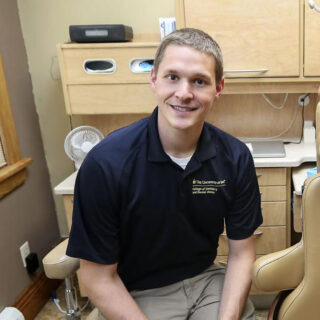
After Clarke, I earned my Doctor of Dental Surgery from the University of Iowa in 2018. Clarke really was the foundation for my success. At Clarke, I had access to research-grade chemistry instruments. I gained an enormous amount of respect for these high-dollar pieces of equipment. At one point, I was asked to perform periodic maintenance and minor repairs. I can’t think of a better way to understand instrumental methods than to take an instrument apart.
Percent the biochemistry workforce will grow by 2026, according to the U.S. Bureau of Labor Statistics.
Percent of Clarke biochemistry graduates who secured a job in their chosen field or enrolled in graduate school by August.
Chemistry majors rate among the highest in job satisfaction after graduation – 85.2% – according to studentsreview.com.


